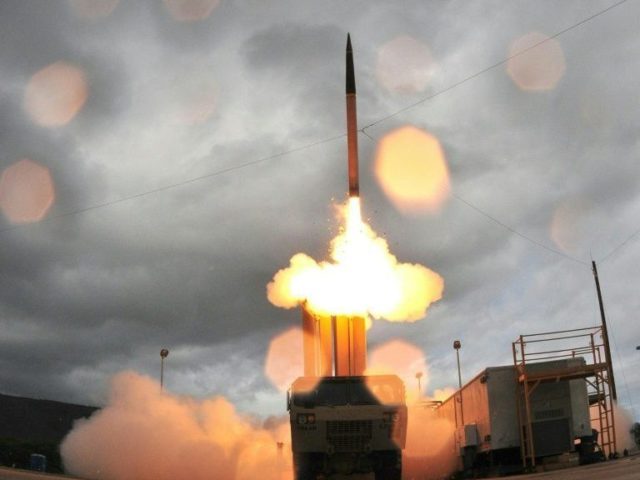Both the U.S. military and South Korean officials stated on Tuesday that the Terminal High Altitude Area Defense (THAAD) anti-missile system is now operational in South Korea.
NPR reports word from the American military, along with news that CIA Director Mike Pompeo has arrived in South Korea for three days of meetings. He began with a visit to Yeonpyeong Island, which was shelled by North Korea in 2010, killing two civilians and two South Korean marines.
Sky News quotes officials in Seoul also saying THAAD is operational while noting that some other South Korean officials recently said they did not expect full functionality for several months to come.
The New York Times more specifically quotes U.S. military spokesman Col. Robert Manning III declaring THAAD is “operational and has the ability to intercept North Korean missiles,” a claim seconded by South Korean Defense Ministry representative Moon Sang-gyun, who said the system “has acquired an initial capability to deal with North Korea’s nuclear and missile threat.”
Reuters cites a South Korean official stating on Sunday that a “restricted operating zone control measure” was established over the THAAD site in Seongju, about 125 miles from Seoul. This suggests airspace around the site is under military control, in preparation for the system going online.
The key to reconciling conflicting claims of THAAD’s readiness probably lies in what Manning and Moon said about an “initial capability” to intercept missiles, with full operational capacity yet to come – most likely near the end of 2017.
Six other THAAD batteries are currently deployed around the world, although Reuters notes their ability to cope with a “barrage of missiles” is uncertain, and none of the batteries has ever been used in wartime.
South Korea is currently in the process of electing a new president to replace impeached President Park Geun-hye. The frontrunner, Moon Jae-in, is a left-leaning candidate who has expressed frustration with the expedited installation of America’s anti-missile system, stating that it should have been delayed until a new administration in Seoul could reconsider full deployment.
China responded to these announcements by repeating its demand for a halt to the deployment of the American system.
“We oppose the deployment of the THAAD system in [South Korea] and urge relevant sides to immediately stop the deployment. We will firmly take necessary measures to uphold our interests,” said Chinese Foreign Ministry spokesman Geng Shuang, as quoted by the South China Morning Post.
As for North Korea, it was too busy threatening nuclear war over the flight of two American B-1B bombers as part of a joint drill with South Korean and Japanese forces to dwell on the first stage of THAAD operational readiness.

COMMENTS
Please let us know if you're having issues with commenting.